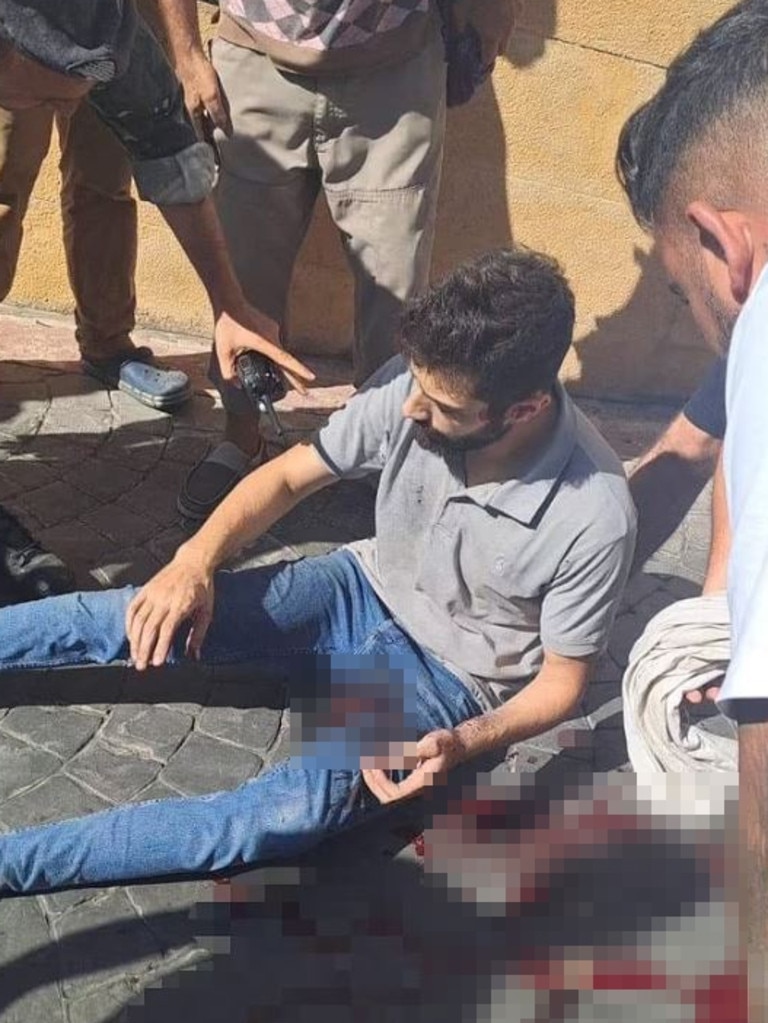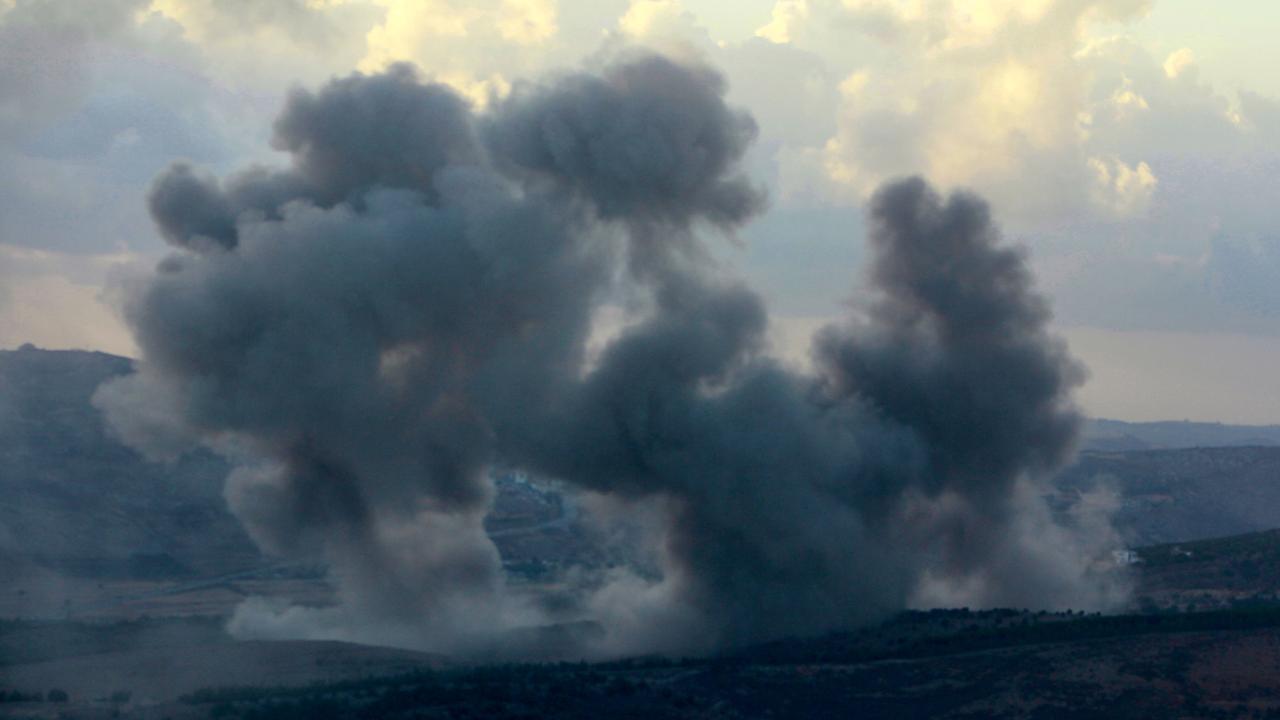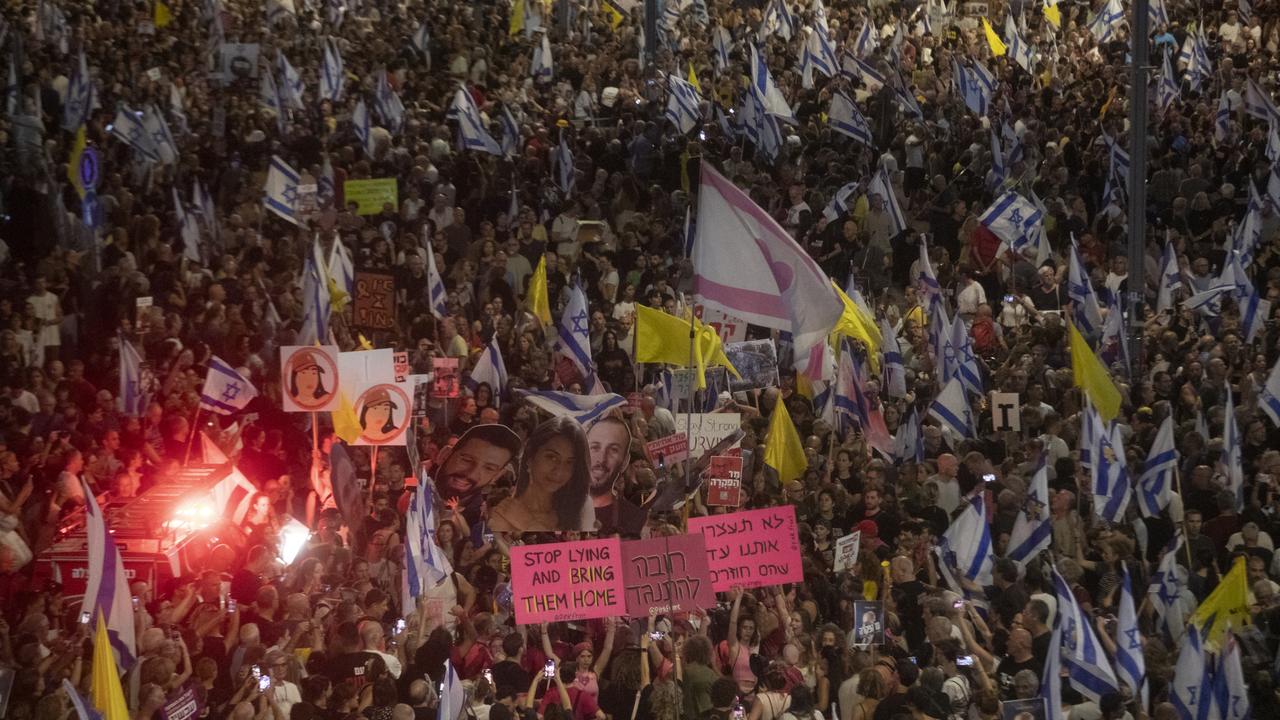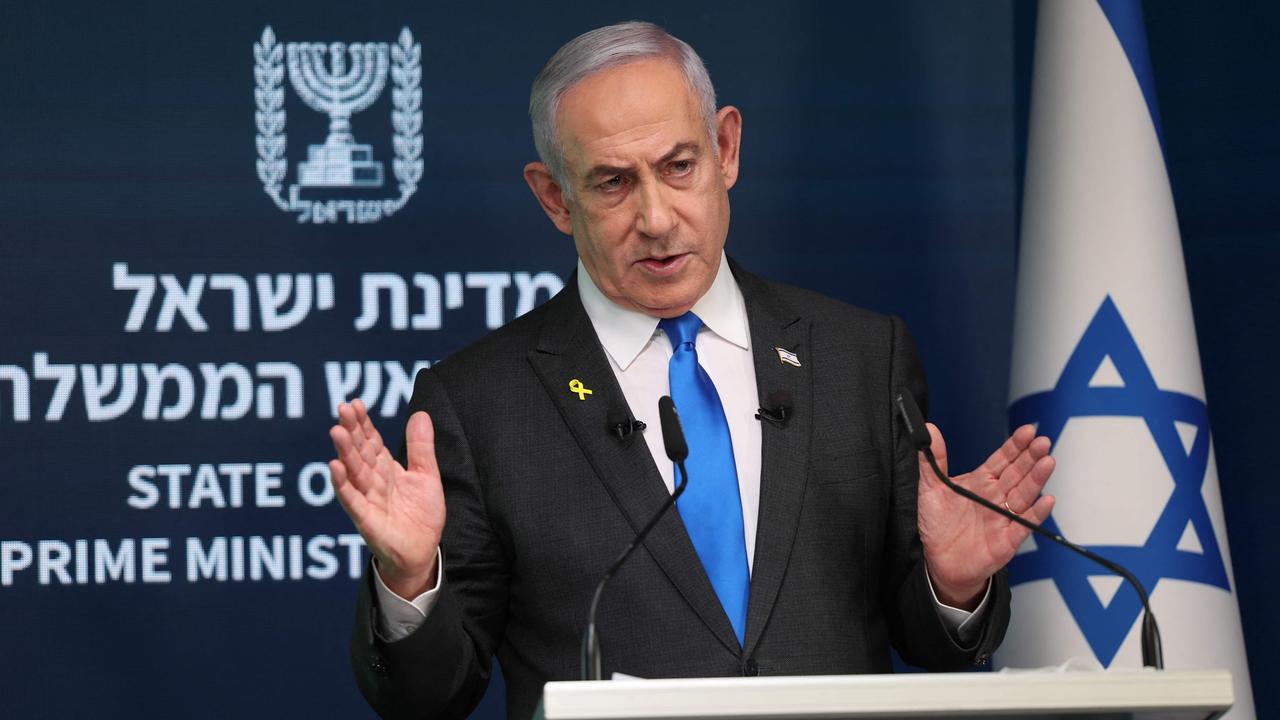
This article is more than
1 year oldThe Middle East has been on a knife edge for almost a year since the October 7 terror attack on Israel. Now, Prime Minister Benjamin Netanyahu seems to have chosen open warfare on multiple fronts against jihadist militias, neighbouring nations – and nuclear-capable Iran.
Overnight, hundreds of personal pagers belonging to the militant political organisation Hezbollah in Lebanon all detonated at precisely the same time. Lebanon’s health ministry reports at least 11 people were killed, including a child. A further 4000 bystanders were injured.Israel has not claimed responsibility for Tuesday’s attack in Lebanon.
But if responsible as has been alleged, it’s the latest – and greatest – escalation in a series of tit-for-tat attacks between the Salafi Muslim terror organisation and Netanyahu’s far-right Israeli coalition.
And it took place just one day after United States diplomatic envoy Amos Hochstein visited Israel to warn Netanyahu of the risks of his threats to invade Lebanon.
On Tuesday Australian time, the Prime Minister and his Minister of Defence Yoav Gallant – both of whom have in recent months threatened Lebanon with complete destruction – spent several hours at a command centre in Tel Aviv.

Then Israel’s security cabinet announced that its “war goals” had been modified to include the return of Israeli evacuees to their homes on the border with Lebanon.
They had been evacuated after the first Hezbollah rocket barrage in October.
“Israel will continue to act to implement this goal,” the Prime Minister’s office said in a statement.Hours after the announcement, the exploding pager attack commenced.
Now, the White House seems almost resigned to the prospect of war.
State Department spokesman Matthew Miller told media today that preventing regional war was “not just a question for the United States”.
“Of course, it’s a first … order question to Israel. It’s a question to Hezbollah. But it’s a question to all of the other countries in the region about what type of region they want to live in,” he told reporters at the White House.
‘Unprecedented damage’
“A major Israeli air and ground assault against Hezbollah, the most heavily armed group in the Middle East, would likely cause turmoil across the entire region,” warns Israeli defence analyst Amos Harel.


“(This) could prove particularly destabilising as the United States enters a crucial stage of its presidential election season. It is also far from clear that such a war could be ended quickly, or that there is a clear path to a decisive victory.”
But former head of strategy for the Israel Defence Force (IDF) Assaf Orion argues a regional war is already underway in all but name.
“From the outset, ‘the Gaza war’ was a misnomer,” he writes.
“Ever since Hamas’s heinous October 7 attack nearly one year ago, Israel has faced not one but numerous antagonists in what has already become one of the longest wars since Israel’s founding.”
The day after the terror attack, Hezbollah launched a volley of rockets into northern Israel as a token of its support for Hamas.
Then the Houthi rebels in Yemen began launching missiles and drones at Israel and at shipping in the Red and Arabian Seas, demanding Israel halt its invasion of the Gaza Strip.
Islamic militias in Syria and Iraq have contributed to the attacks.
But the most dramatic escalation was by Iran after Israel assassinated one of its ambassadors in a Damascus embassy – an attack Tehran interpreted as a violation of its home soil.
It launched a volley of more than 350 drones, cruise missiles and ballistic missiles – almost all of which were shot down before reaching their target.
Here we go...Hezbollah terrorist organization announced the deaths of its members Youssef Madi Alwa, Hassan Ahmed Muhammad, Najib Abdul Hussein Alaa Al-Din, Hassan Muhammad Yassin, Hussein Ahmed Mantash, Muhammad Zakaria Abbas, and Abbas Bilal Munim pic.twitter.com/sPGxkJRnw3
— Aleph א (@no_itsmyturn) September 17, 2024
“If the situation explodes, the border region – and both countries – will experience something they have never encountered before: a full-blown war that will include unprecedented damage to civilian populations and national infrastructure,” Harel warns.
“And judging from past wars between Israel and Lebanon, it is unlikely that it would come to a satisfying end.”
A league of its own
The Hezbollah (Party of God) movement appeared after Israel invaded Lebanon in 1982.
It was established by local Shia Islamist political and religious leaders as a force to resist Israeli occupational forces. But, after Israel’s eventual retreat in 2000, the Iran-backed group has focused on building up its militia into a disciplined military force supported by thousands of rockets and guided missiles.
Intense fighting broke out in July 2006. After a month, both sides agreed to a UN-brokered ceasefire.
“While both sides claimed victory, many military experts argue that Israel failed to achieve its strategic objectives and narrowly avoided a tactical defeat,” strategist Dr Tarik Solmaz writes for the British think-tank Wavell Room.
“Hezbollah is now considerably stronger than it was in 2006 and is generally regarded as the most powerful violent non-state actor in the world.”
It’s estimated to have 30,000 trained militants with a reserve force of 20,000 volunteer fighters.
Israeli sources claim it’s also armed with up to 150,000 rockets and missiles.
Hezbollah’s Secretary-general Hassan Nasrallah earlier this month warned Israel had crossed “all red lines” by launching an intense pre-emptive air attack against suspected missile launch sites.

The IDF claimed an air raid of 100 combat jets had “struck and destroyed thousands of Hezbollah rocket launcher barrels” at more than 40 locations.
Shortly after, Prime Minister Netanyahu said this attack “is not the end of the story”.
“Nasrallah in Beirut and Khamenei in Tehran should know that this is another step on the way to change the situation in the north and return our residents safely to their homes … And I repeat – this is not the end of the story.”
The next chapter unfolded last night.
What does ‘regional war’ mean?
“In an all-out regional war, Israel would be fighting not only terrorist armies and militias sponsored by Iran but also Iran itself,” says Orion.
“Together, these enemies would be attacking Israel from Gaza, the northern border, and the West Bank, as well as from afar – from the east and south.”
Israel’s formal declaration of war against Gaza in October was the first time it had done so in 50 years – despite several intervening military campaigns.
Any conflict with Hezbollah would be at a vastly greater scale than any campaign it has conducted in that time. And it would almost certainly trigger Iran’s “Axis of Resistance” – a loose affiliation of Shiite Muslims across the Middle East.
“A broader war would be far more devastating than anything seen so far,” Orion observes.
“Iran and the Axis would likely act with far more operational co-ordination. Axis forces would also likely attack US forces in the region, as well as Jordan and Gulf States such as Saudi Arabia and the United Arab Emirates.
“At least on a political and logistical level, China and Russia might be drawn in as well, thereby opening up another active theatre of their great-power competition against the West.”
Unlike in previous wars, Hezbollah possesses antitank missiles, artillery and guided weapons.
Israel, for its part, has been supplied with US F-35 stealth fighters and developed its own advanced antimissile defences.

“Combined with thousands of ballistic missiles, cruise missiles, and drones fired by Iran, Hezbollah’s vast arsenal would significantly challenge Israel’s air defences,” the former defence official predicts.
“In addition, Israel would likely stage a ground offensive into Lebanese territory, and Hezbollah would attempt cross-border operations into Israel. Iran’s militias would be expected to attack Israel from both Lebanon and Syria and, if they succeeded, through Jordan.”
Changing the script
“Not since the 1973 Arab-Israeli war has Israel waged a full-fledged war on multiple fronts simultaneously. Nor has it faced a major offensive from another regional power,” says Orion.
“A total war with Hezbollah would be a whole different ballgame,” adds defence analyst Harel.
“Moreover, as previous wars attest, Lebanon is a treacherous battlefield.”
With its vast arsenal, Hezbollah could potentially launch thousands of rockets and missiles every day.
“Israel would have to concentrate on defending crucial infrastructure and military bases, tell the civilian population to stay in bomb shelters, and hope for the best. It would be a challenge that far exceeds anything that Israeli leaders have faced before.”
Israeli forces have also already been at war in Gaza for almost 11 months.

The IDF has reportedly complained of a shortage of guided munitions. It’s prolifically expended its largest one tonne bombs against Gazan residential targets. It’s also lost more than 700 troops, with thousands more wounded, since the war began. And moves to expand the call-up of reservists and new conscripts have proven politically contentious.
“To triumph in a true multifront war, Israel will have to combine all the tools of national power – political, military, economic, technological, informational, and diplomatic – with the vital help of allies and partners,” Orion warns.
“And it will need to find new ways to endure in a longer, intensive fight.”
Whether or not Israel is capable of doing so remains a subject of debate.
Prime Minister Netanyahu is reportedly attempting to replace his defence minister, Gallant, with a more compliant Gideon Sa’ar – the allied right-wing New Hope Party leader.
Gallant has dismissed Netanyahu’s proclaimed aim of “total victory” in Gaza as nonsense while calling for a clear plan as to what “the day after” in Palestine would look like.
Netanyahu has already sacked Gallant once – for opposing moves to curb Israel’s Supreme Court powers over the government. But he backed down after Israelis took to the streets in enormous numbers.
“Israel’s leaders may still find it hard not to respond to a domestic audience that favours dealing with Hezbollah once and for all,” says Harel.
“If Israel succumbs to that temptation without a clearly defined endgame or strategy for limiting the war, the results could be devastating.”
Jamie Seidel is a freelance writer | @JamieSeidel